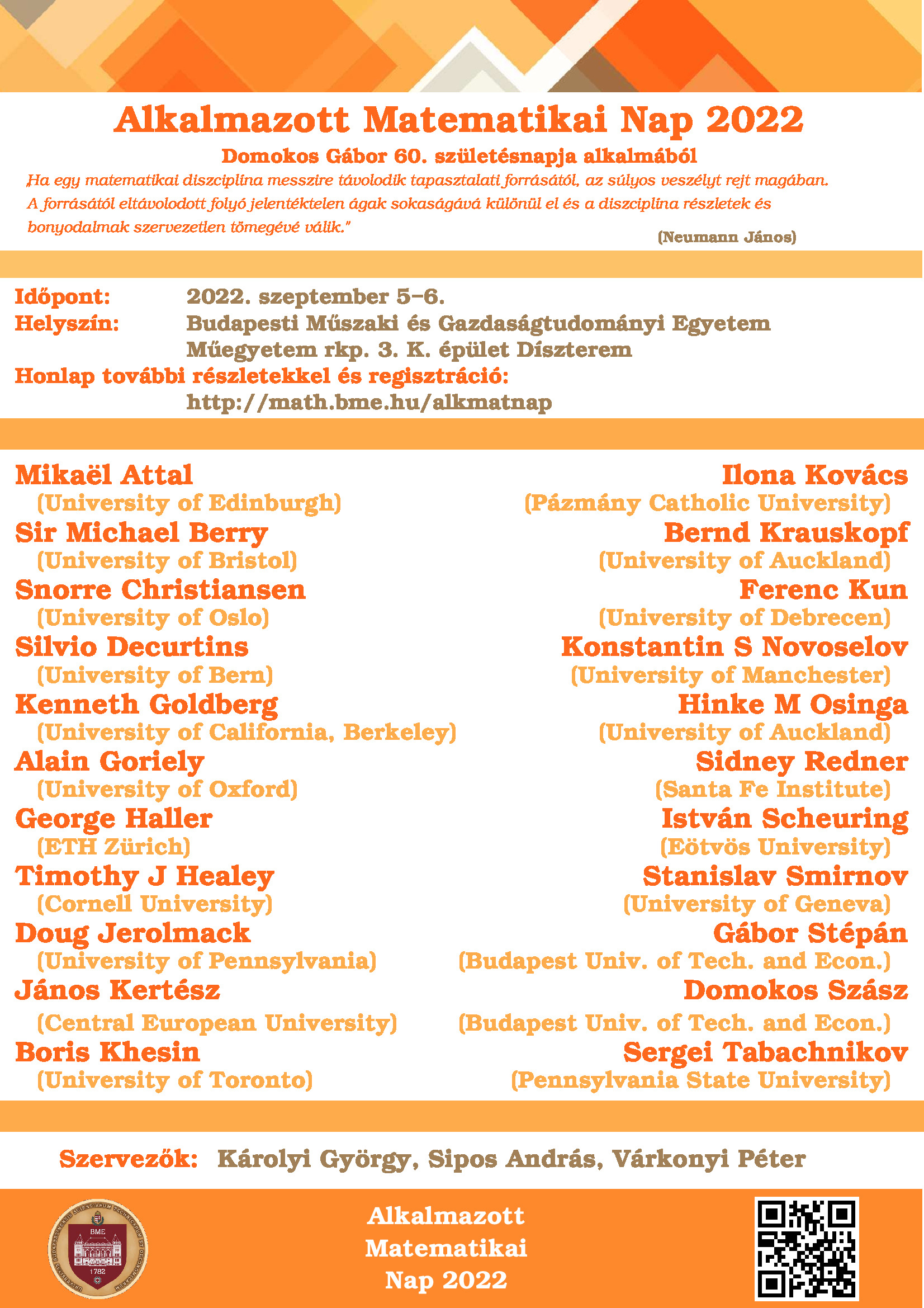Two lectures will be presented at BME Applied Mathematics Day 2023, organized on 5th December, BME building Q, auditorium AF14.

Applied Mathematics Without Borders
A series of lectures were presented at BME Applied Mathematics Day – Applied Mathematics Without Borders 2022, organized on 5-6 September, BME central building, 1st floor, “Díszterem” on the occasion of the 60th anniversary of Gábor Domokos.

Talk at the DDG2 conference
Mechanical complexity of complex polyhedra
Flórián Kovács, MTA-BME Morphodynamics Research Group
July 10, 2019
Discrete Geometry Days 2, Budapest
Abstract: Let P be a convex polyhedron with f faces, e edges and v vertices, and assume it is realized as a homogeneous solid having S stable, H saddle-type and U unstable equilibrium configurations (i.e., standing on a face, edge or vertex over a horizontal surface). Let mechanical complexity C(P) of P be defined as the difference between the sums f + e + v and S + H + U and define mechanical complexity C(S,U) of primary equilibrium classes (S,U)^E as the minimum of mechanical complexities of all polyhedra having S stable and U unstable equilibria. In this talk we show that mechanical complexity in any non-monostatic (i.e., S > 1 and U > 1) primary equilibrium class (S,U)^E equals the minimum of 2(f+v−S−U) over all polyhedra in the same class having simultaneously f faces and v vertices; thus, mechanical complexity of a class (S,U)^E is zero if and only if there exists P such that f = S and v = U. We also give both upper and lower bounds for C(S,U) in the cases S = 1 ≠ U and U = 1 ≠ S (a problem related to a question of Conway and Guy in 1969 asking about the minimal number of faces of convex polyhedra with only one stable equilibrium point), and we offer a complexity-dependent prize for C(1,1). Joint work with Gábor Domokos, Zsolt Lángi, Krisztina Regős and Péter T. Varga.